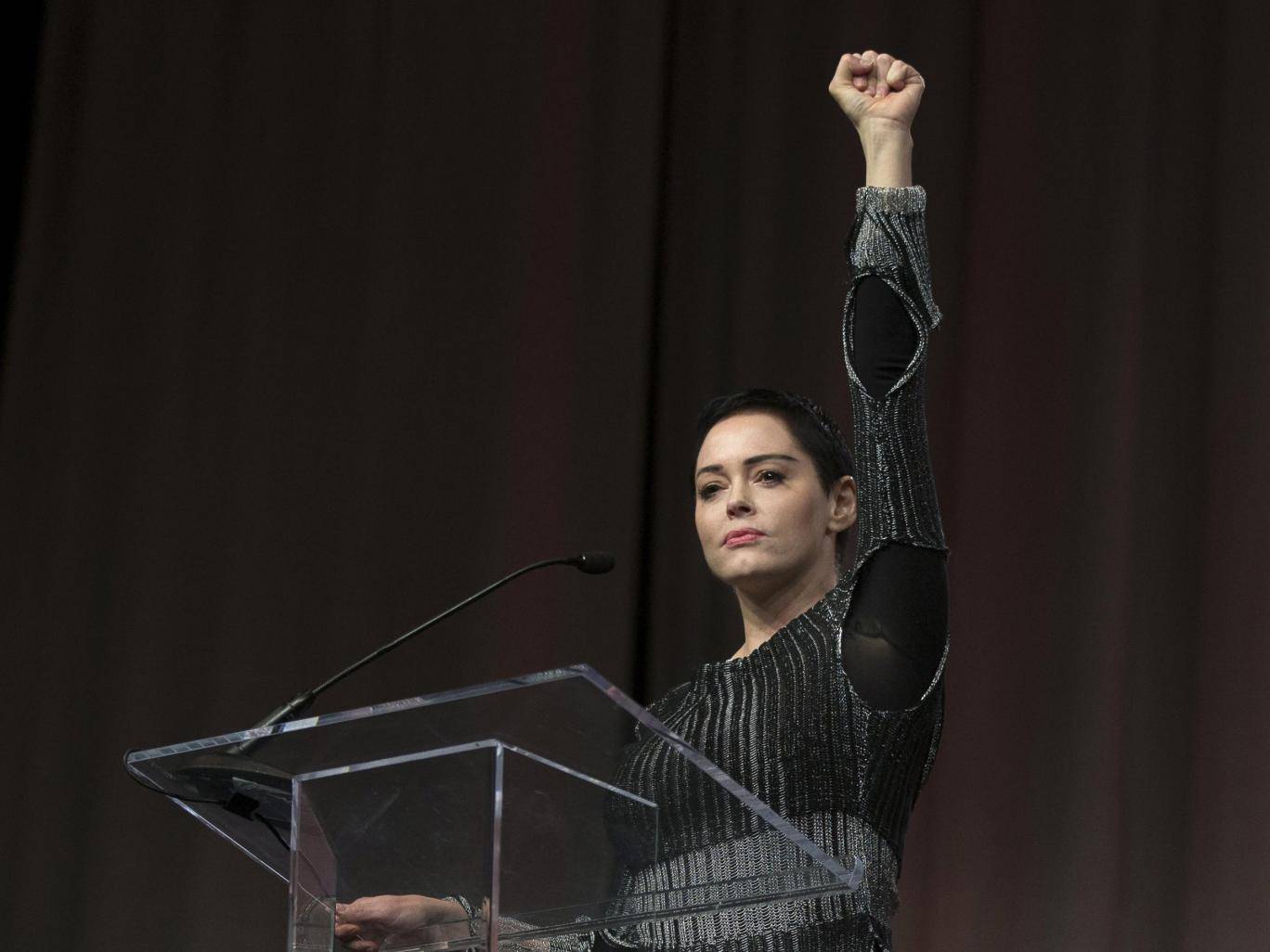As a white cis female, I have undoubtedly fallen into the trap of being a ‘white cis feminist’ at times.
Despite this, I would certainly not pull a Rose McGowan and totally deny the issue: there is an enormous need for intersectionality within feminism.
Feminism for me is about empowering people to have total equality, regardless of race, sexuality, gender, or any other factor. It is crucial that cis ‘feminists’, such as Rose McGowan, use their voices to empower others and to acknowledge those who are largely denied a platform within our society. Whilst Mcgowan has definitely not faced the same struggles as a trans-woman, she could have acknowledged the existence of such individuals within the movement against sexual assault. Mcgowan may not be trans, but she has access to a platform which is largely denied to trans-women and therefore could have used her publicity to empower others, not to put them down.
Sorry, Rose McGowan, but your gross and obvious trans-phobia isn’t feminism @audria_lb https://t.co/vJoJRpaDb9 pic.twitter.com/dla1kYfdl9
— The Tempest (@WeAreTheTempest) February 11, 2018
It is enormously important that white cis women recognise their privilege, and help to enable minority groups to be heard by society. This is something which Emma Watson has made very timid steps towards recently- by pointing to literature written by women of colour on her Instagram.
Only by allowing minorities their own platform, can the road to equality begin.
However, the issue that often does occur when white cis women do try to speak up for any minority group, is that they lose the balance between speaking up and speaking for.
In academia recently, I have come across several incidences of women that have crossed this line, in regard to developing nations. These feminist academics, in their attempts to be inclusive, have actually drowned out minority voices in a notably imperialistic manner. To label all women outside of the West as ‘oppressed’, is to totally overlook female agency and diversity, and allows white women to claim that they are ‘saving’ BAME women.
This imperialistic idea of ‘saving’ women from the ‘other’, can be seen throughout history, from British campaigns against Hinduism due to ‘Sati’, to France’s 2016 ‘burqini bans’. Indeed, when you think about it, the idea of ‘saving’ minority women has alarming links to the attitude of Christian missionaries in the times of empire. Feminism is NOT about enforcing western or secular norms upon other cultures, it is about equality.
And yet, feminism has increasingly appeared as a secular experience. Western feminists dismiss religious cultures as ‘backward’ or ‘uncivilised’ and associate them with a failure to modernise. This link between the colonial idea of ‘civilised’ societies and feminism came across only too prominently in Mary Beards’ recent tweets justifying the Oxfam sex scandal, by claiming that it was difficult to maintain ‘civilised’ values in a ‘disaster zone’. It is this superior (and frankly racist), neo-colonial attitude which turns people outside of the West away from feminism today.
It is important that white western feminists recognise that just because a culture is ‘different’ from our own, it does not necessarily mean that it is constraining or lesser. Consequently, women within such cultures should be allowed to speak for themselves, not drowned out by women who claim to be ‘saving’ them.
Feminism is indeed a 19th century ideology of white middle class women, but it does not have to remain constrained by this. Third wave feminism has been crucial in acknowledging that there is no singular female experience. It is time we stop championing cis white women for the most basic things and start pushing for intersectionality.
Rosie Plummer
Photo credit: AFP/Getty. https://www.independent.co.uk/arts-entertainment/films/news/rose-mcgowan-transgender-woman-shouts-barnes-noble-book-event-a8191431.html

